Many Americans were ready to return to normal, pre-pandemic activities long before COVID-19 vaccines became available, a new study finds.
Researchers from Texas A&M University in College Station, Texas, found that more than 60 percent of Americans took part in at least one behavior deemed as ‘risky’ activities before being able to get a Covid vaccine.
Risky behaviors were considered things such as eating indoors at a restaurant, attending large social gatherings and traveling unnecessarily among others.
What’s more about one out of every five Americans took part in four or more so-called risky behaviors, the study found.
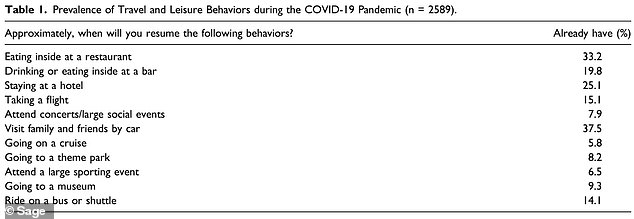
More than 2,500 participants were surveyed on when they planned to resume 11 activities deemed ‘risky’ during the pandemic. They found more than 60% of people had already returned to at least one ‘risky’ activity before the Covid vaccines became available, with the most common being visiting family and friends or eating inside a restaurant
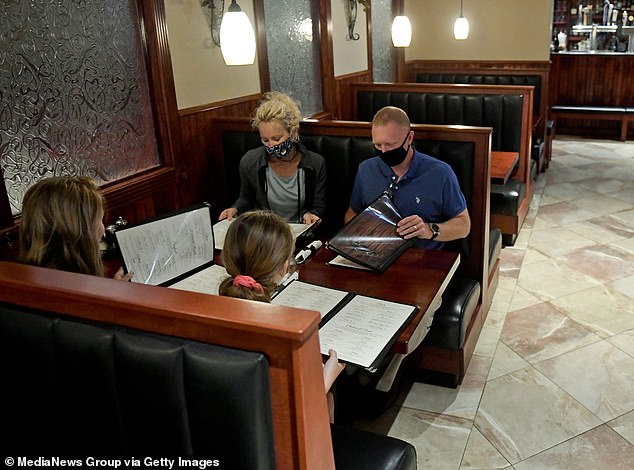
The researchers found that people who were fiscally conservative or had less fear of the virus were most likely to eat at a restaurant indoors during the pandemic. People who were more educated or of a higher socioeconomic status were most likely to take a flight. Pictured: A family in Amityville, Pennsylvania, wears masks while they look at a restaurant menu on July 16, 2020
Researchers, who published their findings in the journal Sage last week, surveyed more than 2,500 people from across the country in November and December 2020.
Each were asked when they planned to resume taking part in any of 11 activities that would be deemed as ‘risky’ by health officials during the pandemic.
There was also an option to report whether the participant had already taken part in the activity despite the prevalence of the virus.
More than one-third – 37.5 percent – of respondents said they had visited a family or friend by car, the most of any activity.
Another third, 33.2 percent, also said they had eaten inside at a restaurant.
Other behaviors like drinking or eating inside a bar (19.8 percent of respondents), staying at a hotel (25.1 percent), taking a flight (15.1 percent) or riding a bus (14.1 percent) were somewhat common as well.
Less than one-in-ten people attended large social events like concerts (7.9 percent), went on cruises (5.8 percent) or to theme parks (8.2 percent), attended sporting events in-person (6.5 percent) or went to museums (9.3 percent ).
In total, researchers found that 60.3 percent of people took part in at least one of the behaviors in December or earlier – before the COVID-19 vaccine was available.
Some, 17.5 percent, took part in four or more of the activities that were deemed risky.
The researchers note that younger people were more willing to take risks during the pandemic than their older counterparts.
People who reported being more fiscally conservative or were less fearful of the virus were more likely to eat out at restaurants or visit loved ones.
Participants who come from a higher socioeconomic status or have attained a higher level of education were most likely to fly on a plane during the pandemic.
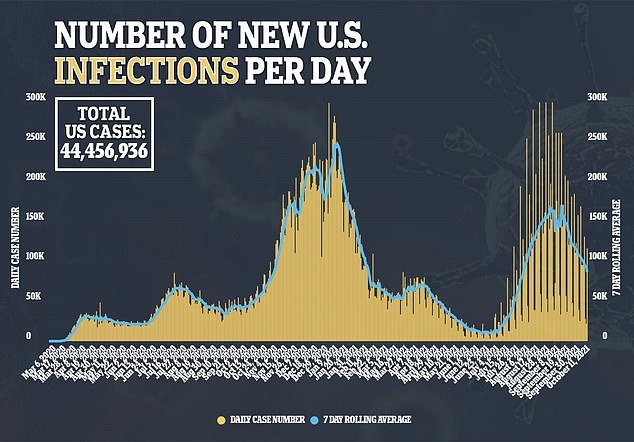
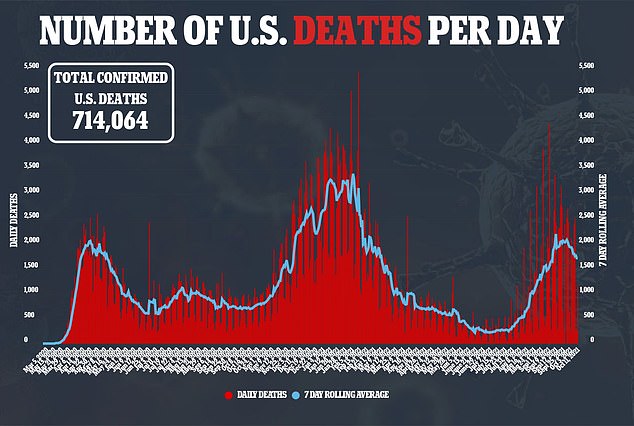
‘These differences may be due to socio-economic status or job demands rather than an effect of education and income and willingness to engage in risky behaviors,’ the researchers wrote about why richer or higher educated people took more flights than others.
Researchers also found that people who lived in rural areas were more likely to take part in risky behaviors than their urban counterparts.
The team believes that many Americans did try to follow pandemic guidelines, though they chose to return to normal life in some instances despite warnings from health officials.
The team believes that health officials should have done a better job focusing on and informing people about the potential risks of Covid, and how susceptible someone truly is to catching the virus when they take part in these types of behavior.
‘Having appropriate messages and working with local, state and national health departments and the CDC to really think through how we respond will help us be ready for the next pandemic,’ said Dr Jay Maddock, co-lead author and a professor at the Texas A&M School of Public Health, in a statement.
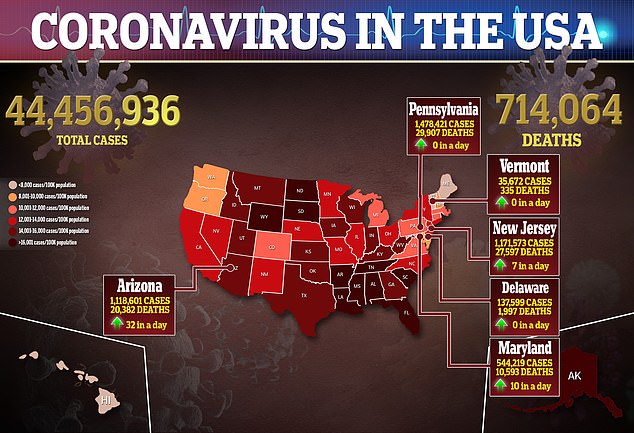
Source link : https://www.dailymail.co.uk/health/article-10084975/More-60-Americans-took-risky-behavior-vaccines-available.html











